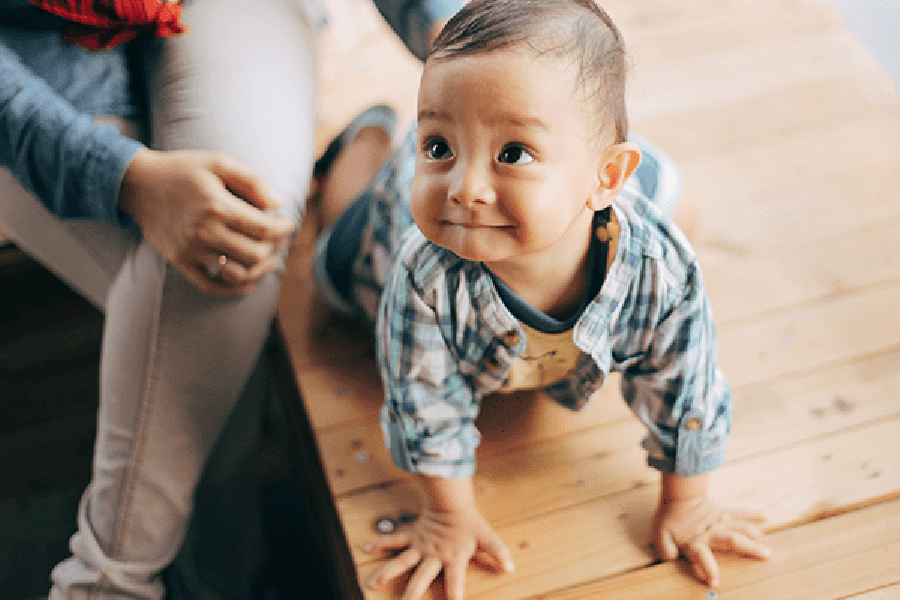Dental Care Timeline for Infants & Children
Posted on November 16, 2020 in Kid's Health

A lot of parenting is simply figuring things out as you go, but one thing that can be tough is knowing when to begin an oral health routine or to seek dental care for infants.
When it comes to understanding a dental care timeline for infants and children, we’ve got you covered.
Most pediatric dentists agree that regular dental care should begin by 1 year of age, with a dental checkup at least twice each year for most children. Some children may need checkups more often depending on their oral health needs.
Here’s a good dental checklist for infants and toddlers from the American Academy of Pediatric Dentistry (AAPD):
Birth to 6 months old
- After feedings and at bedtime, clean your baby's mouth with water and a cloth or gauze or use a soft infant toothbrush.
- Consult your child's healthcare provider about using fluoride supplements if you live in an area without fluoridated water.
- Also ask about applying fluoride varnish to their teeth.
- Establish regular feeding habits (bottle feeding and breastfeeding).
6 to 12 months old
- The first teeth should begin appearing during this period. Consult a pediatric dentist or general dentist for an exam as soon as the first tooth arrives but no later than your child's first birthday.
- Brush these new teeth after each feeding and again at bedtime with a small, soft-bristled brush. You can use a very small amount of fluoride toothpaste—about the size of a grain of rice.
- As your child begins to walk, stay alert for possible dental or facial injuries and places where they are likely to occur.
1 to 3 years old
- Follow the schedule of dental exams and cleanings recommended by your child's dentist. Generally, dental exams and cleanings are to happen every six months for children and adults.
- Around age 3, as your child learns to rinse and spit while brushing, you can use a pea-sized portion of fluoridated toothpaste.
Facts about baby teeth
Proper care of a child's baby teeth—also known as primary teeth—is very important. These teeth hold space for the future adult (permanent) teeth.
- If a baby tooth has decay or is removed too early, the space for the permanent teeth can be lost and often requires orthodontic treatment to fix.
- Infected baby teeth can cause the permanent teeth to develop incorrectly, resulting in stains, pits, and weaker teeth.
- Baby teeth play a role in speech development.
- Baby teeth aid in chewing food correctly, which impacts healthy nutrition.
Most children begin losing their baby teeth around the ages of five and six. Children often lose their front teeth first and continue to lose baby teeth until the age of 12 or 13, when all of the permanent teeth finally come through—except for the third molars (wisdom teeth). These molars begin to appear around 17 to 21 years of age.
Want more tips for helping your kids create good habits for great smiles? Check out this blog. Need help finding a pediatric or general dentist for your baby? CLICK HERE.
*Updated January 2022